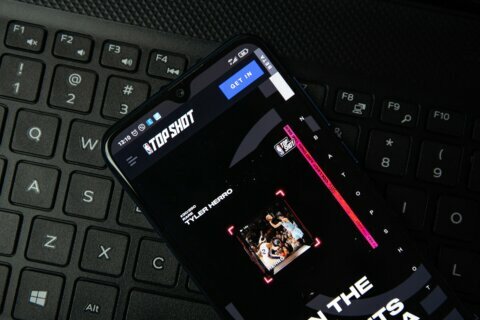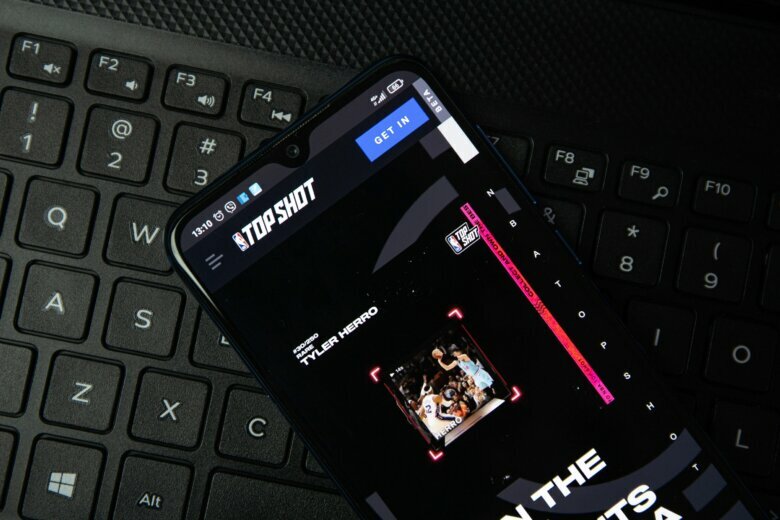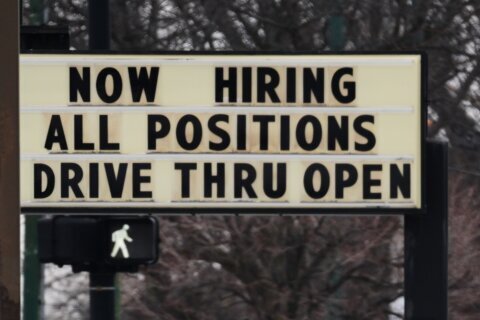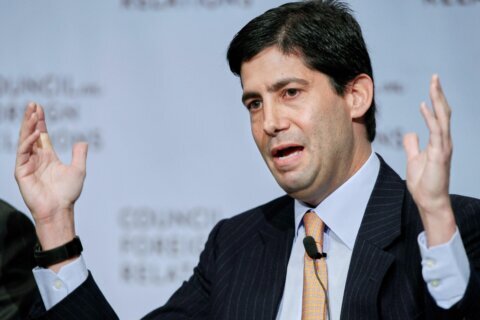
NBA Top Shot is the hottest NFT marketplace on the planet. It’s also got a big problem: Customers are complaining about exceptionally long wait times to get paid from sales of digital tokens that can often cost hundreds of thousands of dollars.
NBA Top Shot is the online marketplace where investors can spend hundreds to hundreds of thousands of dollars on unique, digitized moments from pro basketball. Its astonishing growth was fueled by being in the right place at the right time: having licensed the NBA brand amid a sudden mainstream interest in NFTs, or non-fungible tokens.
Digital packs of NBA highlights —called “Moments” — have sold out quickly, with some highly coveted individual ones being resold for eye-popping prices. Even while NFT prices have fallen dramatically after an astounding period of growth earlier this year, NBA Top Shot remains in high demand.
Dapper Labs, the $7.5 billion company behind NBA Top Shot, has struggled to deal with a massive influx of new buyers and sellers on its platform. After a month of stunning growth (Dapper Labs says NBA Top Shot has 100 times as many users since the beginning of the year) The site has frequently been down for maintenance, and customers have flooded Twitter and Dapper Lab’s official Discord channel with complaints about being unable to withdraw their money.
“I just wanna get my money out man,” complained user “Harry” in the “#vent” channel of the NBA Top Shot Discord.
Withdrawal delays are purposeful, to an extent, Dapper Labs says: Its identity verification and anti-money-laundering procedures necessitate a wait period to avoid fraud. But the company acknowledges that it has been overwhelmed by the massive influx of sales, and it is looking to hire people and beef up its nascent compliance team.
For customers waiting to withdraw their money from Top Shot, the excuses are infuriating.
Michael, a 32-year-old digital advertiser in Los Angeles, who asked CNN Business not to publish his last name out of concern that his account could be shut down, said that since joining NBA Top Shot in January, he’s been unable to access the roughly $40,000 sitting in his account. He recently filed a complaint with the Consumer Financial Protection Board.
“I’m just really worried that I’m not going to be able to get my money,” said Michael.
The waiting period
Dapper Labs is trying to persuade angry customers that the delays are actually a benefit to buyers and sellers: The company touts the fact that — unlike most other NFT marketplaces — it has some fraud protections in place.
Buyers and sellers must go through multiple processes to gain the ability to access the money sitting in their accounts.
The first is an identity verification measure, known in the industry as a “know-your-customer” process that involves taking a photo of your driver’s license and submitting your Social Security number. A spokesperson for Dapper Labs told CNN Business that there is “no backlog” for their KYC verification, and that the procedures are performed automatically with any failed verifications being reviewed within a 48-hour period.
The next process is a six-to-eight-week period during which Dapper Labs monitors accounts for possible signs of fraud. Dapper Labs claims the delay — which was extended from an initial 30-day period — is essential to spot fraudsters.
In a blog post that Dapper Labs shared with CNN Business, the company claims the waiting period is designed to prevent people from buying and selling Moments and then issuing credit card chargebacks.
However, even after customers finally access the ability to make withdrawals, there are still lengthy delays before money actually ends up in their bank accounts.
Firstly, Dapper Labs has placed caps on how much money can be withdrawn. However, the company places a cap on each withdrawal payment, starting at $1,000, and those wire transfers — which carry a $25 fee — take a substantial amount of time to complete. On its website, Dapper Labs says that “most withdrawals are processed within 21 days but others may take 40 days or more.”
In practice, the amount of time varies wildly from customer to customer. Some customers are receiving withdrawal payments in days, while others have been waiting for much longer.
Vincent Diciglio, a 32-year-old data analyst for Microsoft, told CNN Business that he’s been waiting weeks for his wire transfer to go through.
“There’s no reason that a company should be worth billions of dollars and can’t cover these withdrawals or even have the employees to help move this process along,” said Diciglio. “It just doesn’t make sense.”
Dapper Labs told CNN Business that the withdrawal caps are meant to protect customers in the event their account is compromised and to “limit other liabilities.”
The lengthy period for wire transfers even after the six-to-eight-week fraud monitoring period “just doesn’t make sense,” said Rakhi Talwar, an anti-money-laundering compliance consultant for artwork based in the UK. “Isn’t the whole point of these crypto transactions to be instant?”
‘You don’t really know what something is truly worth’
Dapper Labs has big ambitions. By teaming up with the NBA and creating a marketplace that allows for NFT purchases with a credit card (most other NFT sites require a cryptocurrency wallet) Dapper Labs has positioned itself as the bridge between the high-tech world of cryptocurrency and traditional collecting — NFTs for the regular joe.
But the ease and convenience that Dapper Labs offers has come at a cost. Because NBA Top Shot is an all-in-one-marketplace, one that is minting NFTs, converting user’s payments into Dapper Labs’ proprietary FLOW cryptocurrency, and then converting those coins back into cash, they’ve had to deal with the added complications that come with each step.
Dapper Labs has good reason to be concerned about potential misuse of its platform, experts say. Because the value of NFTs are both volatile and difficult to calculate — unlike say, a Picasso painting or a Honus Wagner baseball card, there is little precedent to compare an NFTs value to — they are prime targets for money launderers looking to legitimize ill-gotten gains.
“You don’t really know what something is truly worth,” cautioned Professor Moyara Ruehsen, the Director of the Financial Crime Management Program at the Middlebury Institute of International Studies.
“Given that the value of NFTs can change in seconds in the NBA Top Shot Marketplace (sometimes significantly) and given the frantic and heated 24-7 Top Shot Marketplace, there exists no baseline,” wrote former SEC investigator John Reed Stark in a blistering essay cautioning about the how NBA Top Shot could be exploited by money launderers. “Thus, even the most profitable, erratic or lopsided trading activity could appear ordinary, bona-fide or typical.
But it is not hard to find suspicious activity on Dapper Lab’s platform even with its lengthy fraudulent activity monitoring.
For example, a Moment of Fred VanFleet — the scrappy Toronto Raptors starting guard — hitting a 3-pointer against the Knicks has was minted around 15,000 times. Up until recently, its highest sale was for $1,599 in February. But on April 14, one of the Moments with a high serial number (meaning its value should be low) sold for an astounding $140,090.
To Ruehsen, the transaction is suspicious.
“Hopefully the compliance folks are filing suspicious activity reports (SARs) on cases where the the winning bid is wildly out of proportion with comparable sales of that type of NFT,” said Ruehsen, who noted that while it is Dapper Lab’s responsibly to report suspicious activity to regulators, ultimately it falls on law enforcement to determine if any illegal activity has occurred.
Dapper Labs did not respond to a questions about what actions they might have taken to investigate the Fred VanVleet transaction, or whether they have ever filed a SARs with regulator. However, in a recent interview with Sports Illustrated, Dapper Labs CEO Roham Gharegozlou said he cannot recall ever filing SARs.
While Dapper Labs says they still technically in “beta” mode and are enabling withdrawals as fast as they can — the company told CNN that as of April 23 “more than half” of customers have access to withdrawals — some of the users who have been waiting to gain access to their money have given to despair.
“I haven’t gotten the money, I don’t think I’ll ever get the money,” said Vincent Diciglio. “I’ve accepted that I’ll never see it.”








